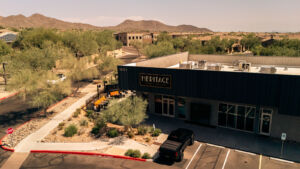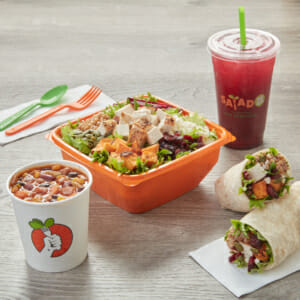The American restaurant industry is starting to simmer. Consumers are spending more on meals, and foot traffic at establishments is improving, albeit from a diminished base, according to the 22nd edition of the Chain Restaurant Industry Review, released at this week’s Restaurant Leadership Conference by GE Capital, Franchise Finance. As sales trends recover, operators are translating those positive feelings into a greater willingness to invest in their businesses. And with increasingly accessible credit, they’re able to commit to higher capital expenditures.
“The restaurant industry has come through the upheaval of the past several years by listening closely to the consumer and adapting to their changing tastes – and they’ve done it well,” said Agustin Carcoba, president and CEO of GE Capital, Franchise Finance. “Depending on their segment, brand and focus, operators have emphasized food quality, service quality, menu options and other factors that will lead to renewed growth this year and in the years ahead. Even better, operators did it all while managing operational costs.”
Consumers spent $406.6 billion at restaurants in 2011. For 21 consecutive months, they spent more at restaurants than grocery stores, and that trend is expected to continue. Last year, quick-service restaurants (QSR) accounted for 48.0 percent of that figure, while full-service restaurants (FSR) counted for 48.1 percent. The QSR category includes limited service, fast casual, take-out locations and snack and non-alcoholic beverage bars, while FSR includes family, casual, high-end casual and fine dining establishments.
Operators’ improved expectations can be partially attributed to positive results that were sustained throughout last year. QSR same-store sales grew 3.2% last year – ahead of the FSR rate of 2.4%. QSR benefitted from eight consecutive periods of growth due to more consistent traffic, while FSR relied more on menu price increases and higher average checks.
“Restaurateurs are no longer in survival mode; now they’re planning for the future,” said Trey Brown, commercial leader of GE Capital, Franchise Finance. “To capture that growth and maintain a competitive advantage, they’re investing in their businesses by building new stores, remodeling existing ones or investing in new equipment.”
The level of liquidity available in the restaurant industry space continues to improve. Merger and acquisition activity – an indicator of the popularity of the restaurant industry among investors – increased last year. Total syndicated volume in the restaurant space increased more than 26% to almost $12 billion in 2011. Strategic buyers returned, such as American Blue Ribbon Holdings LLC, Darden Restaurants and Landry’s Inc. Private equity firms were also active; for example, Golden Gate Capital acquired California Pizza Kitchen.
“We expect restaurants to continue to be appealing acquisition targets because of the ongoing increases in food dollars spent away from home, as well as the scalability of this business model,” Brown added.



